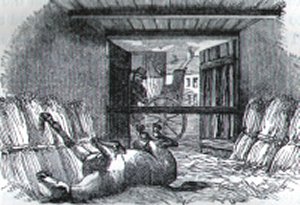 Back
Back
WHAT IS COLIC ? First broadcast on www.provet.co.uk |
This information is provided by Provet for educational purposes only.
You should seek the advice of your veterinarian if your pet is ill as only he or she can correctly advise on the diagnosis and recommend the treatment that is most appropriate for your pet.
Colic is a term in common use - but what does it mean ?
Colic is a term used to describe any form of abdominal pain - especially in horses. Pain in the abdomen can be recognised by various signs :
- General dullness
- Restlessness - the animal is unable to lie still for very long
- "Tucked up" appearance - this is when the animal holds it's head down and its hindlegs push forward arching the spine. The objective of this posture would appear to be to take pressure off the abdominal contents.
- If pain is acute animals may collapse
- With some causes of colic the animal may thrash around on the floor - looking similar to seizures
- Dogs with abdominal pain may adopt a praying position - head down with forepaws facing forwards, hind end in the air
- Animals with colic may seek out cold surfaces to lie on
- If an attempt is made to feel the abdomen (called palpation) the muscular wall may feel very hard - called "guarding".
- Animals with colic often turn and stare at their abdomen
- Horses with colic may make kicking actions with their hindlegs towards their abdomen
- Most animals with colic will refuse food, but they may drink more water than usual

A horse with severe colic - from "The Illustrated Horse Doctor"
by Edward Mayhew MRCVS 1873
There are many different causes of colic - including :
- Diseases of the gastrointestinal tract - including damage caused by internal parasites such as strongyle worms, foreign body penetrations
- Diseases of the urinary tract - including urinary stones (calculi)
- Diseases of the liver
- Diseases of the pancreas - especially in dogs and cats
- Trauma
- Poisoning
- Complications during pregnancy
Some of the causes of colic are potentially life-threatening so it is important to seek veterinary advice as soon as possible.
Updated October 2013